
Episode 2 of the true-crime podcast Ransom: Position of Trust looks at the early suspects in the case and explores Carl and Paulette’s background.
After 12-year-old McKay Everett disappeared, McKay’s father Carl fell under scrutiny.
“Anytime there’s a kidnapping or a domestic violence case you look at the spouse first,” said Guy Williams, who was Sheriff of Montgomery County, Texas back in 1995. “It’s kind of like the person that finds a body. That’s the person you look at first.”
Sheriff Williams doubted Carl’s involvement. “As a parent, we found it hard to believe that a parent would go to this extreme because the question is, what would they benefit from doing it?”
But the FBI wondered if there might be a financial motivation. In an early report they noted that despite the Everett’s stately home and apparent wealth, there were some indications of money problems.
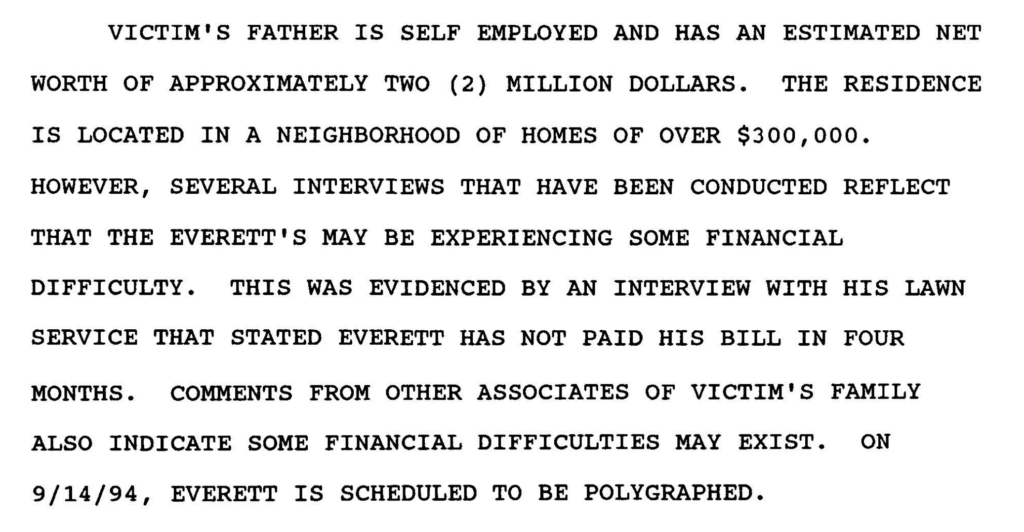
And so, the first person the FBI polygraphed was Carl Everett.
Polygraphs
Polygraphs, or lie detector tests as they’re sometimes known, don’t directly measure deception. Instead, they measure stress responses like sweating or increased heart rate. They’re controversial instruments because they’re only somewhat accurate in determining whether someone is lying. But despite this, many people working in law enforcement agencies — including the FBI — feel that polygraphs are useful.
“It’s routine when you don’t know who you’re dealing with,” said Beth Martin, who was the FBI supervisor on scene for the McKay Everett case.
Investigators say polygraphs are like medical screening tests — they’re not 100% accurate so you don’t want to make a diagnosis based on them but, when a polygraph result suggests someone might be lying, it raises a red flag. Then agents can follow up with further questions and investigation to verify the results.
As the FBI polygraphed Carl, Paulette thought back over their relationship and how they’d gotten to this point.

Carl and Paulette
Carl and Paulette first met in the summer of 1969, when they were both teenagers living in rural Mississippi.
Carl had a friend who was dating Paulette’s younger sister, and, in an overly-ambitious football training session, the two boys ran 10 miles from their hometown of Mendenhall to the town of Magee, where Paulette lived.
When they finally arrived, Carl and his friend spent the rest of the day, sore and recovering in Paulette’s front yard.
“He was alive and happy — a very handsome kid,” Paulette said. “I call him a kid because he was a kid.”
At the time, Paulette was nineteen and Carl was fifteen, and because of the four-year age gap there was nothing romantic between them. But Paulette started running into Carl more often and she enjoyed his company.
Paulette had an abusive father and a turbulent home life, so she tried to spend as much time as possible out of the house. As she got to know Carl, she found herself spending more and more time at Carl’s family farm.
“They had a working farm true working farm,” said Paulette. “60,000 egg laying chickens, sixteen or seventeen horses. They had cows and calves.”
“And they had baby pigs everywhere. And I love baby pigs. And so I would go out to their house and I was just in heaven.”
Eventually Carl and Paulette started dating. “It just kind of developed over time, because it was such an age difference,” says Paulette.
The two got married, graduated college, and moved to Conroe, Texas. And in March, 1983 they had McKay.
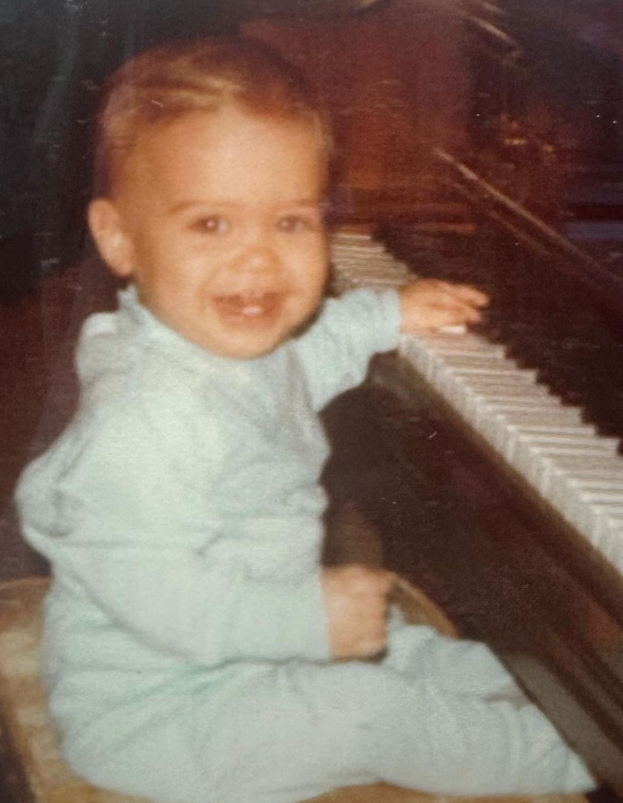
“McKay was a real pretty baby, and very good,” said Paulette. “He was not a great challenge. A lot of people, their babies have colic and all that but McKay was really easy.”
That same year, Carl started his own oil business and Paulette quit her job teaching elementary school to help out.
Carl and Paulette had their share of normal marital problems and resentments, but as Paulette thought back through their relationship, she didn’t see any serious red flags about him.
Neither did the FBI polygrapher, who concluded Carl showed no indication of deception. The FBI cleared Carl as a suspect and moved on down their list.
Neighbor Ric Metts
The next person the FBI wanted to polygraph was Ric Metts, a family friend, who sometimes did handiwork and babysat for the Everetts. “We let him wash windows, plant flowers, cut the yard,” Paulette said. “And he did have a key.”
It’s unclear exactly how Metts got on the FBI’s radar, but one of their reports mentions the Everetts’ house cleaner brought up his name and noted his sexuality.
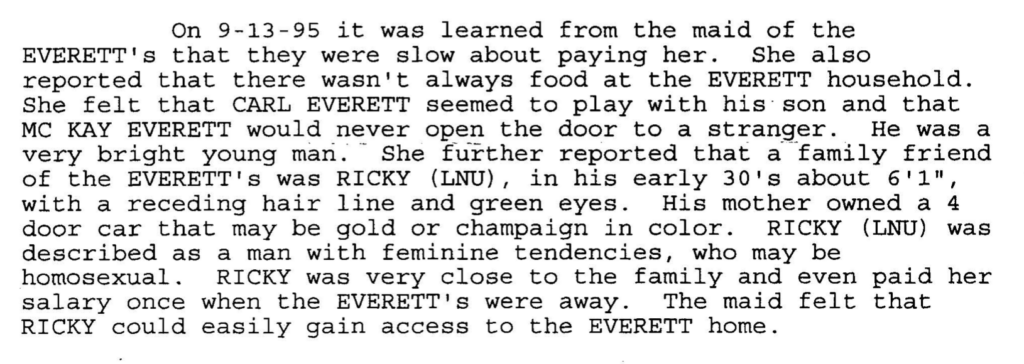
It was an open secret that Ric Metts was gay but homosexuality was still taboo at the time in Conroe, Texas. “No one was as open to talk about it as they are now,” said Metts.
And it’s likely his sexuality made him a person of interest in the eyes of FBI profilers.
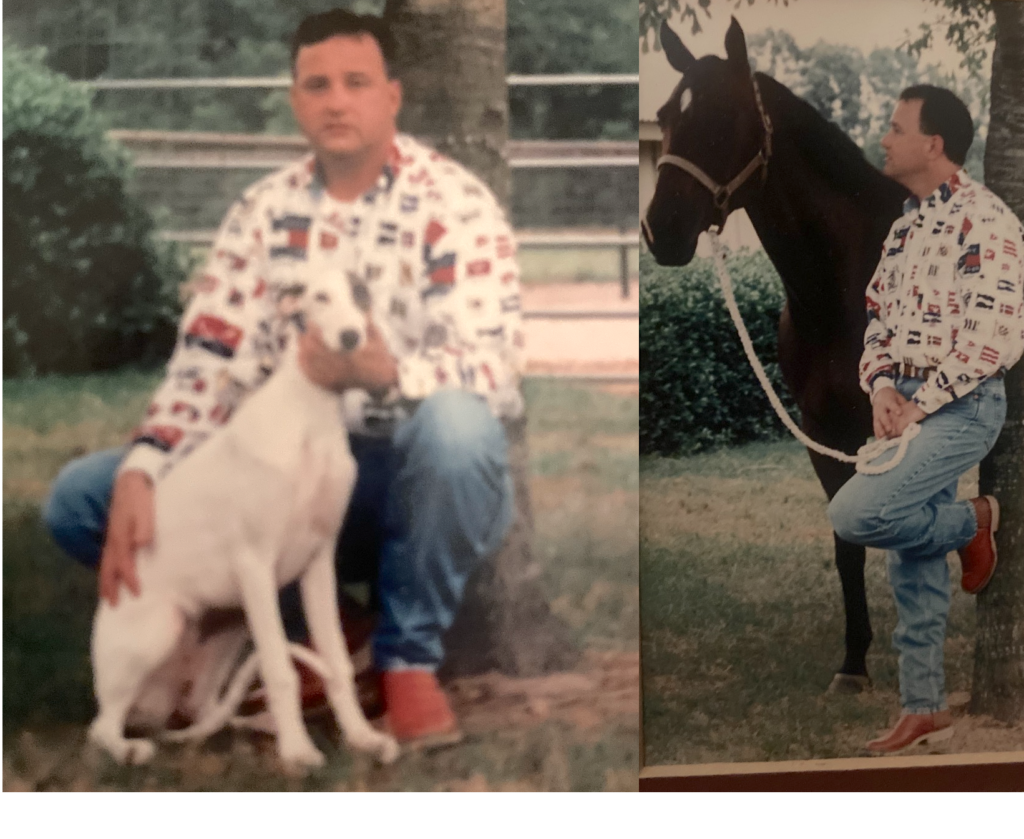
Metts had an alibi the night of the kidnapping. It was his sister’s birthday and he’d been at a well-attended party full of witnesses, but agents demanded he take a polygraph.
“Listen, everybody has a job to do, but they were rude bastards. Absolutely horribly rude,” Metts said.
Metts agreed to take the polygraph, hoping it would clear him as a suspect, and free up the FBI agents to move on and find who had really abducted McKay.
“I was pissed off as hell but I knew it’s gonna be okay. I hadn’t done anything,” said Metts. “But then all of a sudden, I’d kind of get scared and say, ‘Yeah, but there’s innocent people in jail, too.’ “
Metts passed the polygraph with flying colors.
“I just kept telling them, you know, Everett’s a part of Amway,” Metts recalled. “If anybody’s done anything I figured it was someone from Amway. And it wasn’t too far off.”
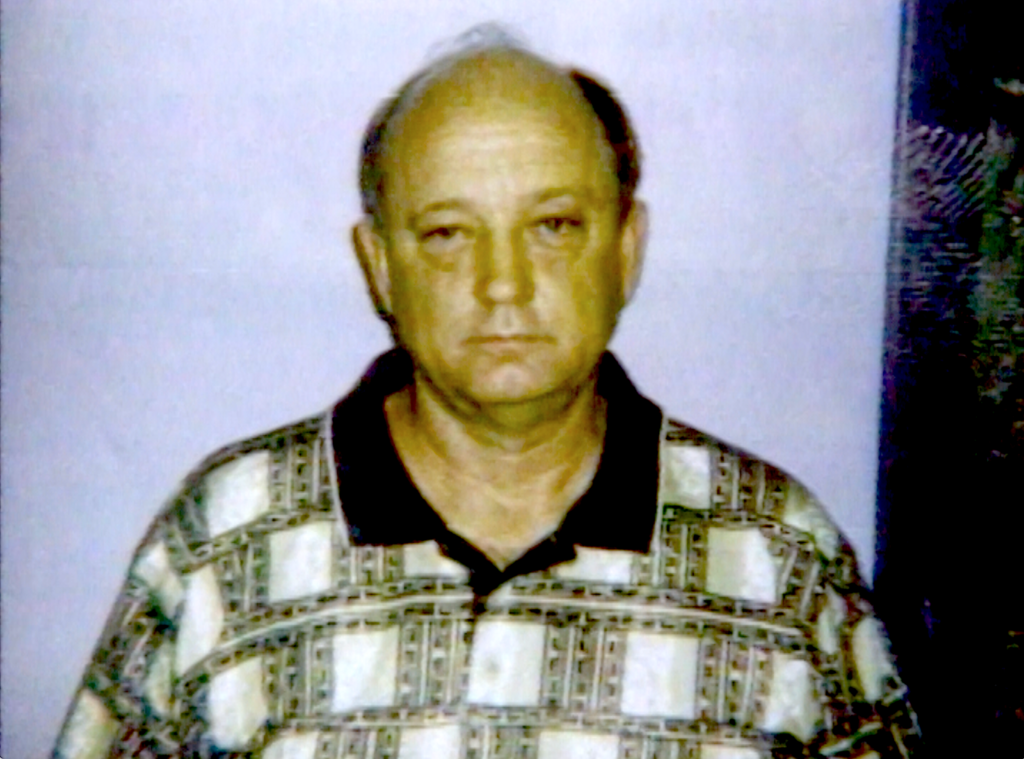
Neighbor Hilton Crawford
Hilton Crawford was a family friend of the Everett’s. He’d known McKay since McKay was an infant, in fact, McKay would call him Uncle Hilty. Paulette shared a home video where Hilton visited on Christmas morning to give McKay a present:
Hilton was one of the first people Carl Everett had called after McKay had disappeared. Hilton had a background in law enforcement, so Carl thought he might have good advice on what to do.
But Hilton wasn’t home. Hilton Crawford’s wife Connie told Carl that Hilton was out of town on a business trip, but she’d pass on the message that McKay had been kidnapped.
The next morning, as Carl waited for the ransom call, Hilton called him back. The call was recorded by the FBI:
“I had a meeting this morning in Silsby, and I’m heading back that way right now,” Hilton said in the recording. “I’m coming to your house, I’m coming straight there.”
But Hilton didn’t come straight to the Everetts’ house. In fact, none of the Everetts’ friends had seen him or his wife since McKay disappeared.
So where was Hilton Crawford and what had he been doing the night McKay disappeared?
Ransom: Position of Trust is a 9-part True Crime Podcast from KSL Podcasts. New episodes are released every Wednesday, with bonus episodes available on Fridays. Follow the Ransom Podcast for free on your favorite podcast app:




